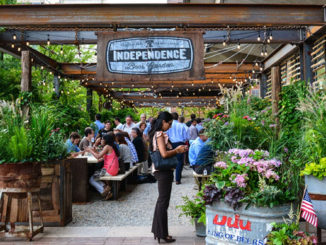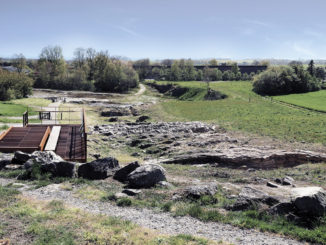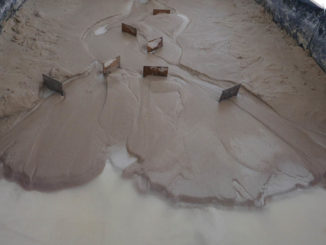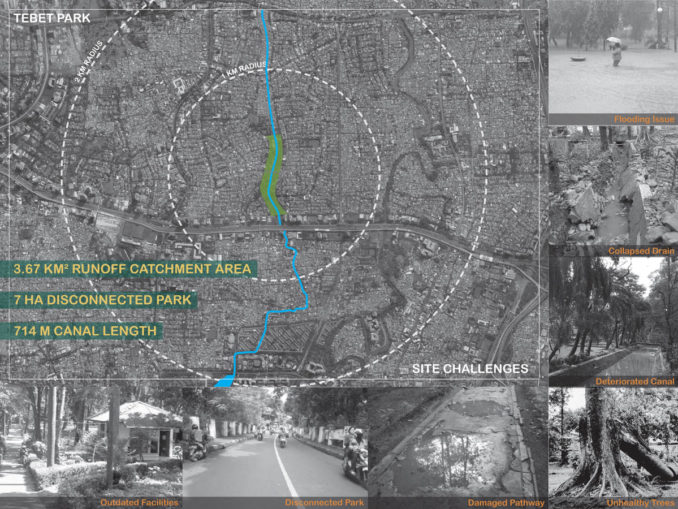
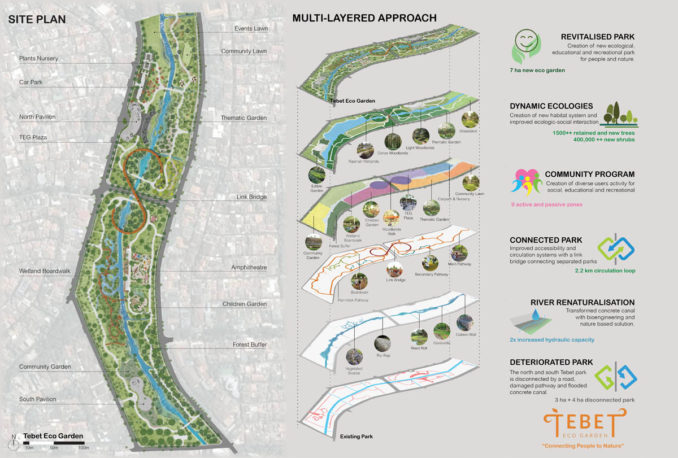
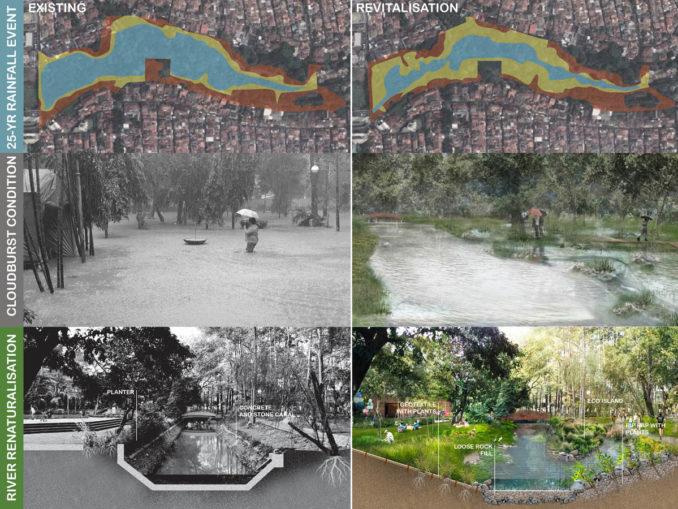
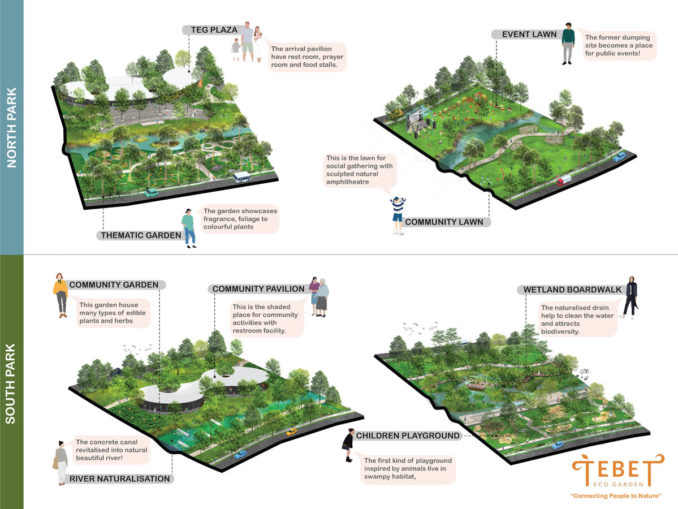
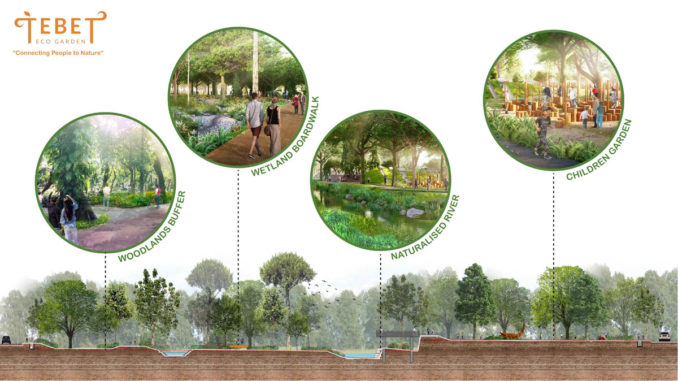
Tebet Eco Garden is a seven hectares public park revitalization project located in South Jakarta. The project itself involves various government municipality of DKI Jakarta. The project plans include increasing the hydraulic capacity of existing canal, improving site wide pedestrian connectivity, and adding new recreation program. The design resolves the site challenge that catalyse active restoration of site ecology with tree conservation and planting succession, reduce risk of flooding with river re-naturalization and cultivate an inclusive environment that offer a wide range of recreational programming. New active and passive park zones created include Wetland Boardwalk, Thematic Garden, Children Garden, Community Garden, Community Lawn, TEG Plaza and Link Bridge complement the ecologically restored waterway and lush vegetation. Tebet Eco Garden aims to rebuild an intimate relationship between people with the natural world through a series ecological, educational, and recreational programming, embracing its new identity as a garden for connecting people with nature.
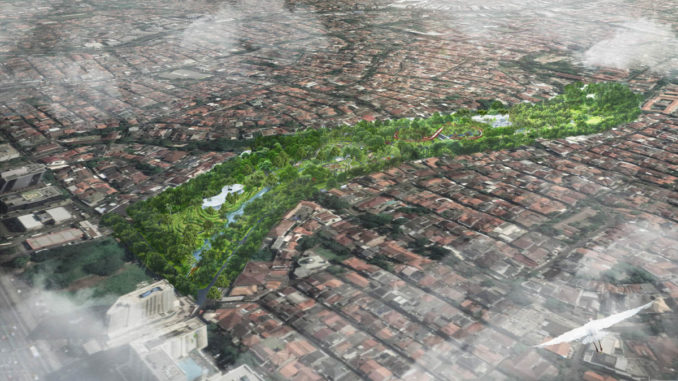
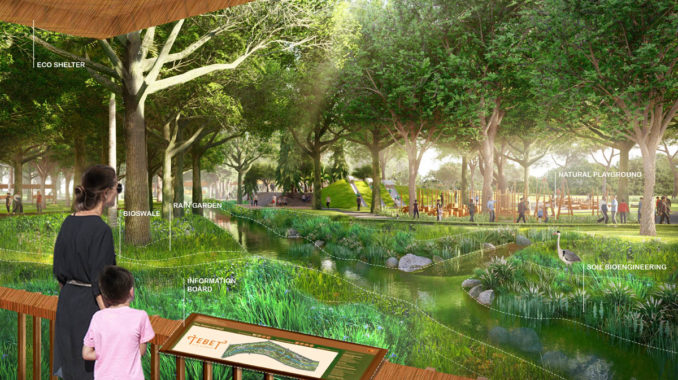
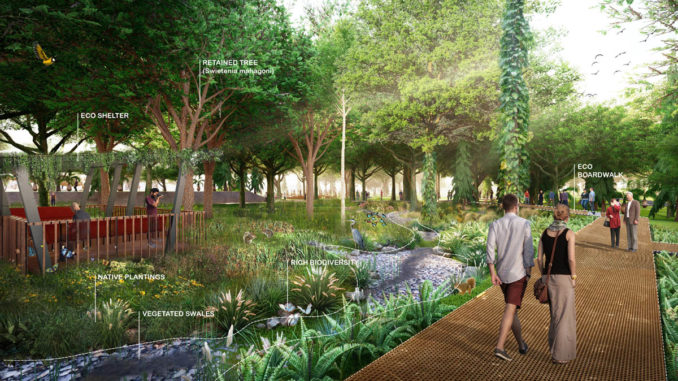
Nature Enhancement
The existing park was left in deterioration with poor trees condition due to frequent flood, collapsed drainage, and broken facilities. During a high storm event, the park is vulnerable to flooding. It was evident the canalized waterway cannot manage to sustain the flooding issues. To resolve this issue, the revitalization focus on utilizing the existing degraded environment with design interventions that maximize ecological restoration through planting succession and river re-naturalization. All existing trees are surveyed and assessed for their health conditions with result that valuable trees are retained, and the unhealthy trees are transplanted to a new location or reused as part of park design such as mulching, street furniture, playground elements, and habitat logs. The new diverse native planting species are selected in natural succession through time. Over 1,500 trees are retained and replanted with 400,000 new shrubs and over 80 new native species to create bio-diverse environments.
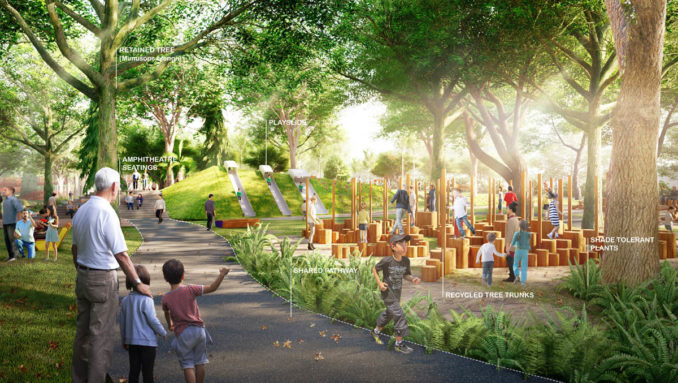
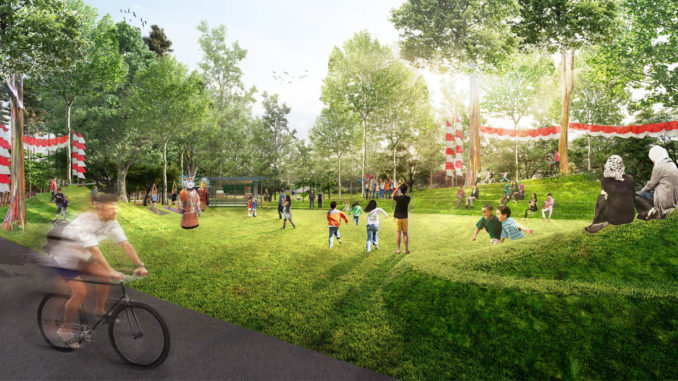
River Re-naturalisation
The once highly polluted 714-meter-long straight rubble stone drainage will be revitalized into an active waterway using vegetation and natural embankments. The re-naturalization would enforce Tebet Eco Garden into a sustainable, resilient landscape and a form of flood control at the site and positively impacting the surrounding area. The soil bioengineering embankment envisioned as an ecologically restored river will be planted with riparian plants that improve water quality by filtering and cleansing surrounding runoff and enhancing site biodiversity. A widen and meandered waterway designed will increase hydraulic capacity, reduce flood plain, and bringing the diverse native river ecosystem back to the park. Most of the infill materials for soil bioengineering use recycled concrete, rubble stones, and construction debris kept from the existing site.
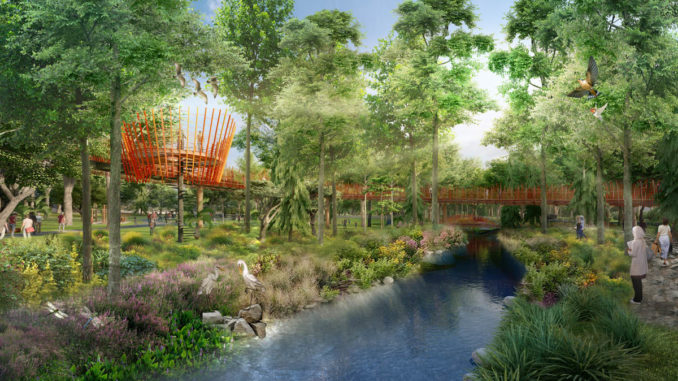
Community-centric Program
Educational and Recreational open space program is distributed throughout the North and South Park. TEG Plaza becomes the main visitor arrival area that provides information, restroom, F&B stalls, and an amphitheatre for cultural show. Children Garden zone orchestrated as series of playscapes inspired by the animals that live in swampy habitats, just like the old Tebet place known for its swamp area. Thematic Garden is programmed as a vibrant socio- recreational area for the public to enjoy the outdoor green space. The garden theme features floral, fragrance, and foliage planting, a picnic area with a long swing weave through the existing mature Eucalyptus trees groves.
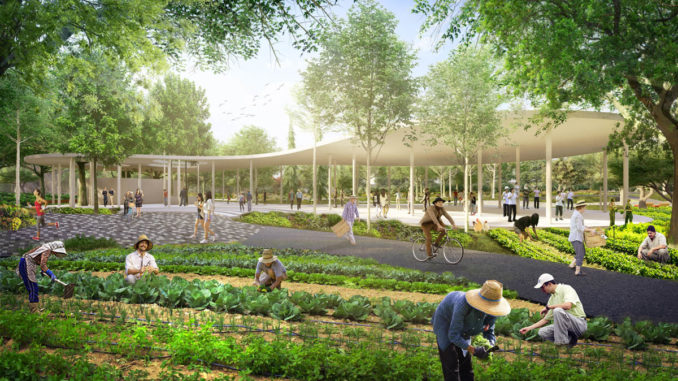
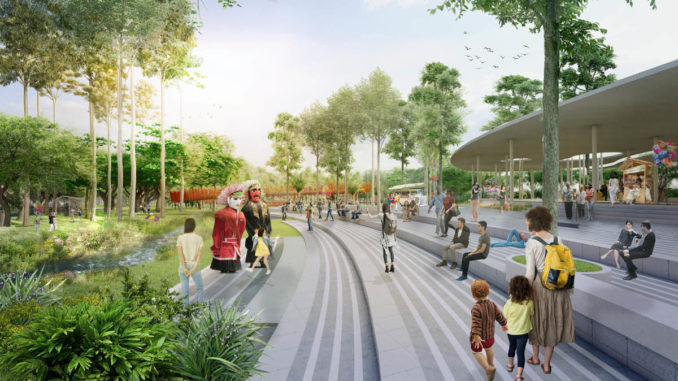
Community Garden at the south park entry will accommodate public gardening interests to grow edible plants. The Community Lawn with sculpted mounding at the park’s north is a place for community daily exercise activities or occasional public events.
Park Connectivity
The Link Bridge links the separated North and South Park, curving and ramping up beneath the existing trees, which brings the experience of walking through the trees canopy. The internal pedestrian path is designed to meet barrier-free accessibility with looping circulation that connects each educational and recreational zone. The sitewide perimeter pedestrian path along the main road is enhanced to improve district-scale pedestrian connectivity with upgraded infrastructure and utility systems. When completed, Tebet Eco Garden will become an inviting blue-green open space that is easily accessible by the people from all age, background, and conditions to enjoy the benefit of the park, connecting people with nature
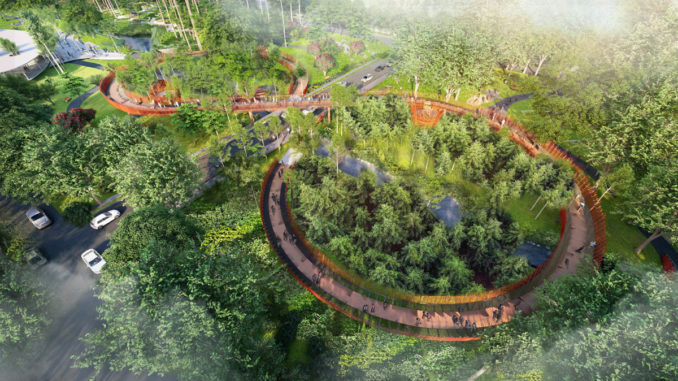
Tebet Eco Garden
Location Jakarta, Indonesia
Landscape Consultant: SIURA
Owner: Provincial Government of DKI Jakarta
Client: PT Award Global Infinity
Architecture Consultant Studio Sae
Infrastructure Consultant PT Wahana Krida Konsulindo
Main Contractor PT Idealand Cipta Hijau
Images/Text Credits: SIURA LLP

